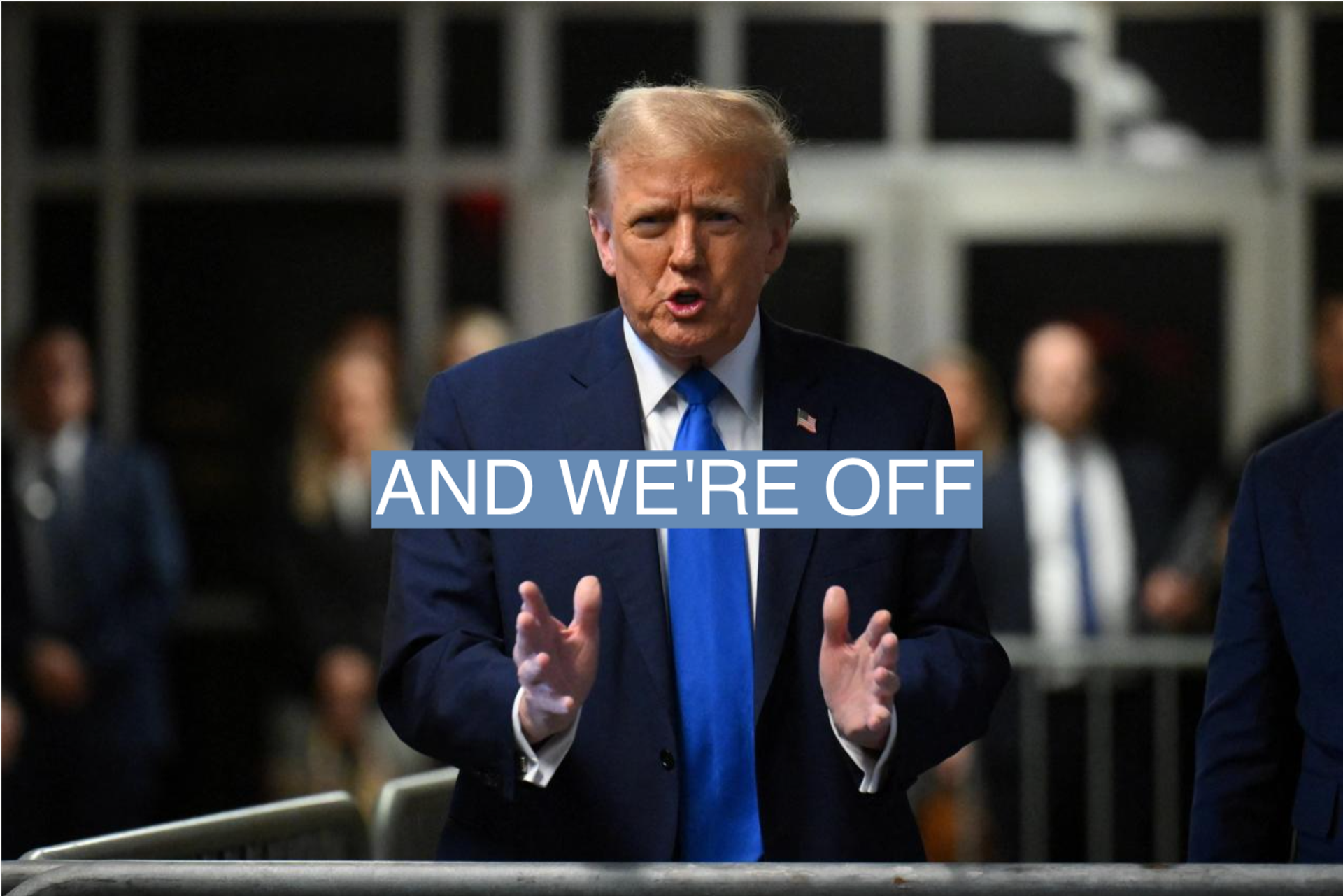The News
Prosecutors told a jury Monday that Donald Trump lied repeatedly to cover up a sex scandal as part of a conspiracy to get elected in 2016, as opening arguments began in the first ever trial of a former president of the United States.
Trump has pleaded not guilty to charges that he falsified business records to cover up payments made to adult film actress Stormy Daniels to keep quiet about an affair — allegations the Republican presidential candidate denies.
As the trial got underway, the prosecution told the jury of 12 New Yorkers that Trump paid hush-money to Daniels in an effort to keep negative information out of the public eye ahead of the 2016 election.
“It was election fraud, pure and simple,” said Matthew Colangelo, who presented the case for the Manhattan district attorney’s office.
The defense’s opening statement was similarly blunt: “President Trump is innocent,” his lawyer Todd Blanche said. “President Trump did not commit any crimes.”
Trump’s lawyers accused the prosecution of trying to paint legal activities such as nondisclosure agreements in a negative light, “There’s nothing wrong with trying to influence an election. It’s called democracy,” Blanche said.
SIGNALS
Former National Enquirer publisher killed negative Trump stories
David Pecker, a friend of Trump’s who was also publisher of the National Enquirer during his presidential campaign, testified that the publication practiced “checkbook journalism,” paying to publish some stories and buying others to quash them and keep them out of the hands of rivals — a practice known in the media industry as “catch and kill.”
Prosecutors will use Pecker’s testimony to show that the hush-money payment at the center of this case was part of a larger push to influence the election by killing negative news about Trump. In 2018, The Enquirer’s parent company struck a deal to avoid federal prosecution by admitting it illegally tried to influence the election.
Trump team paints former aide Cohen as untrustworthy
Michael Cohen, the lawyer and Trump-lackey-turned-enemy who paid Daniels to keep quiet about her alleged relations with the former president, is the prosecution’s star witness. As Politico put it: “Michael Cohen may be the only person standing between Donald Trump and jail.” But Cohen is far from a perfect witness — he was convicted for perjuring himself before Congress — and the defense argued Monday that the jury cannot trust him. Cohen also pleaded guilty to federal campaign finance crimes in 2018.
The prosecution anticipated the defense’s argument that Cohen was unreliable, telling the jury they would go to “great lengths to get you to reject his testimony, precisely because it is so damning.” Prosecuting lawyer Colangelo said the “evidence will also show why you can credit Michael Cohen’s testimony despite those past mistakes” and would be backed up by documents, other witnesses, and Trump’s own words.
Jurors are anxious about being attached to this case — for good reason
Jury selection for Trump’s trial was grueling, as lawyers attempted to choose impartial jurors and protect their identities. Judge Juan Merchan said Monday that one juror was nervous about the media attention surrounding the case, but would remain seated. Thanks to social media, it’s easier than ever to identify jurors in high-profile celebrity cases such as this one, Axios reported.
A former federal prosecutor compared the security concerns around this case to those surrounding mob trials, seeming to reference the intense backlash the jurors could face from Trump’s loyal supporters, particularly those who see this trial as an attempt to stop him from winning reelection — an unfounded conspiracy theory stoked by the former president himself.

